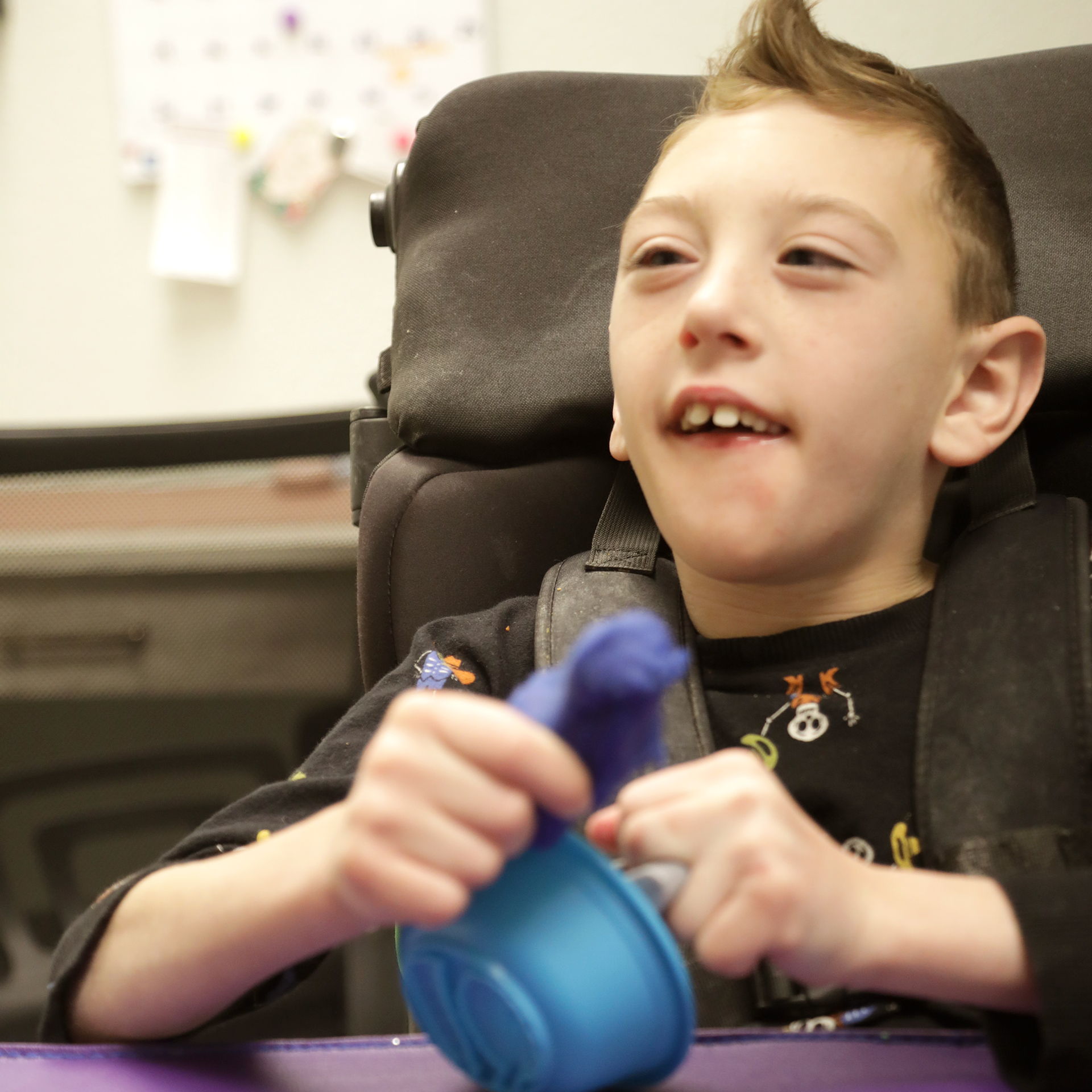Average Registered Behavior Technician (RBT) Salary


Overview of RBT Salaries in the U.S.
Registered Behavior Technicians (RBTs) play a vital role in delivering applied behavior analysis (ABA) therapy, a rapidly growing field within behavioral health. As demand for these professionals increases, so does interest in understanding their earning potential. This article explores the average salaries of RBTs across different regions, factors influencing compensation, career progression, and salary benchmarks that define the industry standard.
Average Salary Levels for RBTs in the United States and Illinois

What is the average salary of a Registered Behavior Technician (RBT)?
The typical annual compensation for a Registered Behavior Technician (RBT) across the United States is about $54,000. In Illinois, this figure climbs significantly higher, with an average salary of approximately $73,924 per year. This variation is partly due to regional demand for ABA therapy services and the higher cost of living in certain areas.
Specific salary data in Illinois
In Illinois, RBT salaries vary depending on the city and the level of experience. Major cities like Chicago and surrounding suburbs report salaries hovering around $74,000 annually. Other cities such as Cicero, Oak Park, and Evanston also offer competitive wages, with typical salaries ranging from about $74,685 to $74,946 per year.
The statewide average salary in Illinois is notably higher than the national average, reflecting the increased regional demand for ABA therapy and specialized behavioral services. The salary range in Illinois extends from roughly $64,300 to over $80,200, offering ample opportunity for growth.
Comparison with other states and cities
Across the United States, salaries for RBTs are influenced by factors like the cost of living, local demand, and healthcare funding. States like New York and Hawaii report higher average salaries—around $48,157 and $54,234 respectively—particularly in high-cost areas.
Job markets in states like California and Hawaii tend to command salaries exceeding $65,000 for seasoned RBTs, and even higher with specialized skills or additional certifications. Conversely, some regions report lower average wages that generally range from $29,760 to $48,157.
| Location | Average Salary | Top Cities/Details | Salary Range |
|---|---|---|---|
| United States | ~$54,000 | Nationwide median, varies by state and city | $45,000 - $65,000 |
| Illinois | ~$73,924 | Chicago, Cicero, Oak Park, Evanston, with salaries ~$74,000+ | $64,308 - $80,242 |
| Hawaii | $54,234 | Urban Honolulu’s highest-paying city in Illinois | — |
| New York | $48,157 | Higher salaries due to high cost of living | — |
These figures underscore the importance of location, experience, and additional skills in shaping salaries for RBTs. As the demand for behavioral health services continues to grow, especially in high-cost urban areas, compensation packages are likely to remain competitive and rewarding for qualified professionals.
Regional and City-Based Salary Variations

Salaries across different states
The pay for Registered Behavior Technicians (RBTs) varies significantly across the United States, influenced by regional demand, cost of living, and local economic factors. Nationwide, the average salary hovers around $54,249 annually, but in Illinois, the average jumps to approximately $73,924 per year. State comparisons show that salaries can be as low as about $29,760 in some areas and as high as $48,157 in states like New York.
Different states offer different opportunities and salary ranges. For example, Illinois presents a broad salary spectrum, with top cities like Chicago offering around $74,946 to $74,685 annually. The highest-paying state is Hawaii, with Urban Honolulu providing average salaries close to $54,234. Meanwhile, California states generally see salaries in the range of $47,850, reflecting both high demand and the higher cost of living.
Top-paying cities within Illinois
Within Illinois, the highest salaries are concentrated in cities such as Chicago, Cicero, Oak Park, Evanston, Skokie, Oak Lawn, Des Plaines, and Mount Prospect. Salaries in these locations typically range around $74,600 to $75,000 annually. These areas tend to have a higher cost of living, but also a greater demand for ABA therapy services, which elevates compensation levels.
For example, Springfield surpasses many other parts of Illinois with an average salary of about $66,560, making it a notable exception to the general trend of higher wages in urban centers.
Cost of living considerations
Cost of living is a crucial factor when evaluating salary differences across regions. High-cost areas like Chicago, with its bustling urban environment, typically offer higher pay to match expenses. In contrast, areas with lower living costs tend to have more modest salaries, although the relative affordability can offset lower wages.
Understanding regional salary disparities for RBTs is essential for professionals considering relocation or job opportunities. Higher salaries in major cities reflect both the increased demand for specialized ABA services and the economic conditions of those regions.
| Location | Average Salary | Regional Highlights | Estimated Cost of Living Impact |
|---|---|---|---|
| Illinois (overall) | $73,924 | Cities like Chicago, Cicero, Oak Park, Evanston | Higher due to urban needs |
| Springfield | $66,560 | Notable for higher pay within Illinois | Moderate to high |
| Chicago | ~$75,000 | Leading city, high demand | High |
| Urban Honolulu | $54,234 | Highest city salary in Hawaii | High |
| California States | ~$47,850 | High demand, expensive living costs | High |
| General U.S. | $54,249 | Wide variation across states | Varies depending on area |
Exploring regional disparities helps professionals make informed decisions, balancing salary potential with the cost of living and regional demand for ABA services.
Impact of Experience, Education, and Certifications on Salary Growth

What is the impact of having a Bachelor's degree on an RBT’s salary?
Earning a Bachelor's degree can significantly influence an RBT's earning potential. Initially, a degree can boost the salary to around $49,000 per year, providing a competitive edge in the job market. Further advancements in education, such as obtaining a master's degree, can push annual salaries beyond $56,000. These educational attainments open doors to higher-paying roles and increase opportunities for professional growth.
Are certifications and experience key drivers for salary increases?
Definitely. Certifications like BCaBA (Board Certified Assistant Behavior Analyst) or BCBA (Board Certified Behavior Analyst) are highly valued and often lead to higher compensation. These credentials demonstrate advanced expertise and committers' dedication to the field.
As professionals gain experience, their salaries tend to rise accordingly. Entry-level RBTs with less than a year of experience typically earn around $47,000 annually, while those with several years of experience can earn over $66,000. Skilled RBTs specializing in areas such as data collection, crisis intervention, and data analysis usually receive higher pay, sometimes reaching up to or exceeding $70,000 in their careers.
The combination of educational achievement, certifications, and practical experience significantly impacts salary growth. These factors not only boost individual earning power but also expand career options within ABA therapy, making them essential considerations for advancing in this field.
Additional insights
For RBTs looking to maximize their earning potential, investing in certifications and continuous education is highly recommended. The growing demand for qualified ABA practitioners ensures that those who advance their skills will see corresponding increases in salary and job opportunities.
For more detailed information on how education and certifications influence RBT salaries, a targeted search using the phrase "Impact of education and certification on RBT salary" can provide valuable resources and insights.
Salary Benchmarks and Industry Standards
What is the typical salary range for RBTs?
Registered Behavior Technicians (RBTs) in the United States typically earn between $45,000 and $65,000 per year. Entry-level positions usually start around $39,000, while more experienced professionals can make over $66,000 annually. In Illinois, the average salary is notably higher at approximately $73,924, with top cities offering salaries around $74,946. The median annual salary across the nation hovers around $50,278, indicating a robust earning potential within the profession.
Hourly rates reflect this trend, averaging about $19.53, with the highest reported hourly pay reaching $25.36. Salaries are influenced by factors like experience, location, and additional skills. For new professionals, the total initial compensation, including bonuses and benefits, averages about $17.43 per hour, increasing with expertise.
Which employers are known for higher compensation?
Certain companies stand out for offering higher salaries to RBTs. Top-paying employers such as Walmart, Flex, and Behaviour Innovations present salary ranges from approximately $51,000 up to $87,000 annually. These companies often enhance compensation with bonuses, profit sharing, or other benefits that boost total pay.
Additionally, highly sought-after skills like Data Collection, Crisis Intervention, and Data Analysis can contribute to higher earnings, whereas skills like Training and Applied Behavioral Analysis (ABA) may sometimes yield slightly lower pay compared to the market average.
Additional pay components
Beyond base salary, RBTs may receive additional compensation in the form of bonuses, tips, or profit-sharing plans, contributing around $3,970 yearly in extra earnings. The total compensation package can thus vary significantly based on experience, location, and employer policies.
Table summarizing salary benchmarks:
| Location / Company | Average Salary | Range / Highest Pay | Notable Details |
|---|---|---|---|
| National Average (U.S.) | $54,000 | $45,000 - $65,000 | Median salary around $50,278 |
| Illinois (overall) | $73,924 | $64,308 - $80,242 | Top cities offer close to $75k |
| Urban Honolulu, HI | $54,234 | - | Highest paying city in the U.S. |
| Employers like Walmart, Flex | Up to $87,000 | - | Top-paying companies with strong benefits |
This industry continues to grow, driven by increasing awareness of the importance of Applied Behavioral Analysis (ABA) therapy. With a job growth projection of 12% to 22% over the next decade, salary potential and job stability are expected to improve.
Search for further insights
To explore more about industry standards and salary benchmarks for RBTs, a detailed search for "RBT salary industry standards and benchmarks" can provide additional contextual data, helping professionals understand evolving compensation trends and market demands.
Additional Compensation and Benefits
What components make up RBT compensation?
Registered Behavior Technicians (RBTs) typically receive a base wage or salary that forms the core of their compensation package. In 2025, the average hourly pay for an RBT is approximately $19.53, translating into an annual salary of around $42,640 in Illinois, with national averages hovering near $54,000.
Beyond the base pay, RBT compensation can include various additional income sources. These might consist of bonuses, tips, profit sharing, or other incentives that recognize performance and contribution. Benefits such as healthcare coverage, paid time off, retirement plans, and training opportunities often accompany their pay packages, although these can vary significantly depending on the employer.
How do bonuses and tips influence total compensation?
Bonuses and tips, while not universal across all positions, can considerably impact an RBT’s total earnings. On average, these additional pay components can contribute about $3,970 annually to a technician’s income.
This supplementary income not only boosts overall earnings but also serves as motivation for maintaining high performance and improving client outcomes. For employers, offering bonuses and tips can enhance job satisfaction and loyalty among RBTs, which is critical given the expanding demand for ABA therapy roles.
Additional insights into RBT pay components
The total compensation for RBTs is composed of several parts, making it more than just an hourly wage or salary. High-demand locations like Chicago, Oak Park, and Evanston in Illinois show higher average salaries, around $74,685 to $74,946 per year, highlighting geographic variation.
Skills such as Data Collection, Crisis Intervention, and Data Analysis tend to command slightly higher pay, whereas roles involving Training or Applied Behavioral Analysis (ABA) may pay less than market averages. Continuing education, certifications, and experience also influence total earnings, with experienced RBTs earning over $66,000 annually.
The table below summarizes typical salary components and geographical variations:
| Pay Component | Average Amount | Notes |
|---|---|---|
| Base hourly wage | $19.53 per hour (2025) | Equivalent to about $42,640 annually in Illinois |
| Additional pay (bonuses and tips) | $3,970 annually | May include performance bonuses and profit sharing |
| Entry-level annual salary | $47,000 | Starting salary for new RBTs |
| Experienced salary | Over $66,000 | For seasoned RBTs with more than 10 years of experience |
| Geographic variation | $29,760 to $80,242 (range) | Top cities in Illinois have higher salaries |
Overall, compensation for RBTs is influenced by multiple factors, including skills, location, and additional educational qualifications. As the demand for ABA services continues to grow, so does the opportunity for increased earnings through comprehensive benefits and incentive packages.
Projected Job Growth and Career Outlook
What is the job outlook for RBTs?
The future looks promising for Registered Behavior Technicians (RBTs). The field of Applied Behavior Analysis (ABA) therapy is experiencing substantial growth, with a forecasted increase in employment opportunities ranging from 12% to 22% over the next decade. This growth rate surpasses the average for most occupations, driven by a rising awareness of autism spectrum disorders and an increased demand for behavioral health services.
As awareness and diagnosis rates grow, so does the need for qualified professionals who can implement ABA strategies. This expanding demand not only creates more job opportunities but also positions RBTs for upward mobility within the field, including roles such as Behavior Analysts or supervisory positions.
How does career progression influence salary?
Advancing in a career as an RBT can lead to substantial salary increases. Starting at an entry-level position with salaries around $47,000 annually, experienced professionals with additional certifications or higher education, such as a master's degree, can earn over $70,000 or more annually.
Gaining additional skills like data collection, crisis intervention, and data analysis enhances earning potential. Moving into supervisory or specialized roles also opens up higher salary brackets, often surpassing $80,000 in some cases.
Impact of demand on salaries
The rising demand for ABA therapy services directly impacts salaries for RBTs. Increased competition for skilled professionals tends to push pay rates upward, especially in high-cost areas such as Illinois, California, and New York. In Illinois, for example, salaries for RBTs range from around $64,308 to over $80,200 annually, influenced by geographic location and experience.
The continuous growth in demand and the essential nature of ABA services indicate a stable and lucrative career path for those entering or advancing within this field.
| Aspect | Details | Additional Insights |
|---|---|---|
| Expected growth rate | 12% - 22% over the next 10 years | Higher than average, indicating expansion |
| Starting salary | Around $47,000 in the U.S. | Entry-level opportunities in Illinois start at similar figures |
| Salary after 10 years | Over $70,000, with potential over $80,000 in high-demand areas | Career progression significantly boosts earning potential |
| Factors influencing salary | Experience, certifications, location, additional education | Skills like data analysis slightly enhance pay |
| High-demand areas | Illinois, California, New York | Salaries especially high in urban and high-cost areas |
As the ABA field continues to grow, RBTs are not only vital to providing essential services but also positioned for a rewarding and expanding career journey.
Summary and Future Trends in RBT Compensation
Current Salary Overview for Registered Behavior Technicians (RBTs)
In Illinois, the average annual salary for a Registered Behavior Technician (RBT) stands at approximately $73,924, significantly higher than the national average of about $54,000. Entry-level RBTs in Illinois start around $64,300, while the most experienced professionals can earn up to $80,200. On an hourly basis, this translates to roughly $20.50 to $23.90, depending on experience and location.
Across the United States, RBT salaries generally range from $45,000 to $65,000 per year, with top-paying companies offering salaries reaching up to $87,000 including bonuses and incentives. Notably, urban areas like Chicago and Honolulu tend to offer higher wages, reflecting the cost of living and demand for ABA therapy.
Emerging Trends and Salary Projections
The demand for RBTs is expected to grow rapidly over the next decade, with a job growth rate forecasted between 12% and 22%. This expansion is driven by increased awareness of autism spectrum disorder and the expanding need for behavioral health services.
As the field continues to develop, salaries are likely to rise, especially for those gaining more experience or additional certifications. Salaries for highly skilled and specialized RBTs, particularly in high-cost areas, could surpass current top ranges, reaching over $85,000 annually.
Factors Likely to Influence Future Pay
Several factors will shape future salary trends for RBTs. These include geographic location, with higher compensation expected in areas like California, New York, and Hawaii. Educational attainment, especially advanced degrees, can also boost earning potential.
Additionally, skills such as data collection, crisis intervention, and behavioral analysis tend to lead to higher pay. The overall growth of the ABA therapy sector and increased demand for qualified professionals will continue to push wages upward.
| Factor | Influence on Salary | Additional Notes |
|---|---|---|
| Location | Higher in high-cost, high-demand areas | Cities like Chicago, Honolulu, and NYC pay more |
| Experience | Salary increases with years of service | Over $66,000 after 10 years |
| Skills & Certifications | Certain skills can command higher pay | Data analysis and crisis intervention boost pay |
| Educational Level | Advanced degrees lead to higher wages | Master’s or higher increases total earnings |
| Industry Growth | Increasing demand drives wages higher | Sector expanding faster than average job growth |
As demand grows and the profession evolves, RBTs who continue to develop their skills and obtain advanced certifications will likely see their salaries grow faster than other sectors, reflecting the expanding importance of behavioral health services.
Key Takeaways for RBTs and Aspiring Professionals
The field of ABA therapy offers promising salary prospects for Registered Behavior Technicians, especially for those who pursue further certifications and develop specialized skills. Regional disparities emphasize the importance of strategic geographic choices, while ongoing industry growth ensures increasing demand and compensation potential. Staying informed about industry standards and continuously enhancing one's qualifications are vital strategies for maximizing earnings in this rewarding field.
References
- Registered Behavior Technician: Average Salary in Illinois in 2025
- Salary: Registered Behavior Technician in United States 2025
- Average Registered Behavior Technician (RBT) Salary
- Average Registered Behavior Technician (RBT) Salary
- Registered Behavior Technician Hourly Pay in 2025 | PayScale
- Registered Behavior Technician Salary in Illinois
- Exploring RBT Certification Salary: A Friendly Guide for Aspiring ...
- Registered Behavior Technician Salary | RBT Salaries
Recent articles

What to Expect at Your First Therapy Session
Discover what your child’s first therapy session looks like, from rapport building to goal setting, and how families can feel confident starting care.

Celebrating Small Wins: How Therapy Helps Kids Build Confidence All Year Long
Learn why small wins in therapy matter, how they boost your child’s confidence, and simple ways families can celebrate progress all year long.

Empowering Missoula Children to Grow With Confidence and Connection
Learn how ABA therapy in Missoula helps children build communication, independence, and confidence through personalized, family‑centered support at Advanced Therapy Clinic.

Compassionate Pediatric Therapy in Butte, Montana
A welcoming place where every child’s potential is celebrated

How Pediatric Therapy Helps Kids Thrive across Montana and Wyoming
A supportive guide for families exploring therapy options in Billings, Butte, Missoula or Sheridan.

How to Choose the Right Pediatric Therapy Clinic in Billings, Montana
A Parent‑Friendly Guide To Finding The Best Support For Your Child

